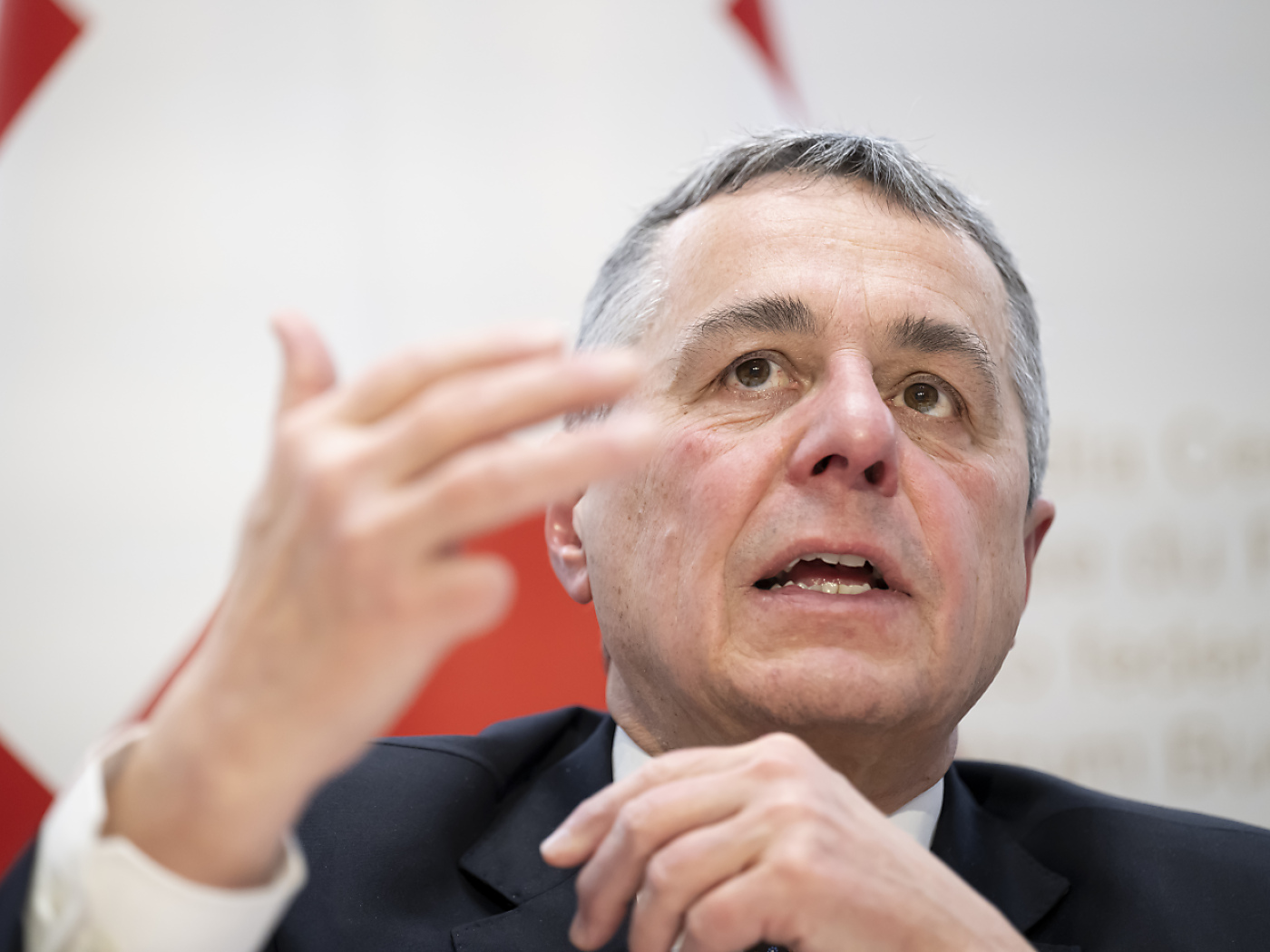
‘Switzerland needs a stable relationship with its neighbours,’ says foreign minister

The international situation is not sufficiently taken into account in Switzerland, says Foreign Minister Ignazio Cassis: "We have become accustomed to our prosperity and security over the decades – they are almost a divine right."
Not all is well with the world, Cassis said in an interview published on Monday by the Tamedia newspapers. “The economic health of the European Union is deteriorating,” he said. “Strategy in geopolitics is back with a vengeance […] World trade […] is going backwards. We are once again entering an ‘America first, Europe first, Switzerland first’ logic”.
+ Get the most important news from Switzerland in your inbox
He noted that the great powers are unabashedly asserting their claims to power, “if necessary by force”. “A new world order is being born, but we don’t know what it will look like,” he said.
For the time being, Switzerland is coping “relatively well”, added the politician from the southern, Italian-speaking canton of Ticino. “But I can also see the symptoms at home,” he said, citing the debate over the federal budget and the polarisation of opinion.
Agreement with the EU
Against this backdrop, Switzerland needs “a stable, predictable and serene relationship with its neighbours,” he told the newspapers. In his view, the new package of agreements with the European Union (EU), approved by the government on December 20, will provide this stability.
+ Heard something about Swiss diplomacy that we should fact check?
“Today, we are surrounded by a ‘ring of fire’ all around the European continent”, with wars in Ukraine and the Near and Middle East, unrest in the Caucasus and migratory flows causing instability and overthrows, he said: “Switzerland is at the centre of a continent in crisis. We are part of the European ‘community of destiny’.”
Despite this gloomy picture, the Radical-Liberal politician believes that a ceasefire could be possible in 2025 in Ukraine, “because the conditions could be right”. “A truce would only be the beginning,” he said. “The difficult question is how it could lead to a peace agreement.”
Translated from French with DeepL/gw
This news story has been written and carefully fact-checked by an external editorial team. At SWI swissinfo.ch we select the most relevant news for an international audience and use automatic translation tools such as DeepL to translate it into English. Providing you with automatically translated news gives us the time to write more in-depth articles.
If you want to know more about how we work, have a look here, if you want to learn more about how we use technology, click here, and if you have feedback on this news story please write to english@swissinfo.ch.

In compliance with the JTI standards
More: SWI swissinfo.ch certified by the Journalism Trust Initiative


























You can find an overview of ongoing debates with our journalists here . Please join us!
If you want to start a conversation about a topic raised in this article or want to report factual errors, email us at english@swissinfo.ch.